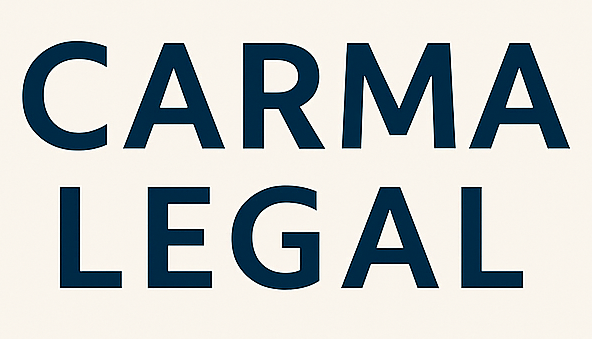When you are injured by malfunctioning machinery or faulty tools, an injury from defective equipment lawyer can help you navigate complex legal processes and secure the compensation you deserve. Whether you work on a construction site, in a manufacturing plant, or suffered harm from a defective consumer product, you have options beyond workers’ compensation. In this guide, you will learn how third‐party liability works, why specialized legal representation matters, and how to take the right steps after an accident to protect your rights.
Recognize defective equipment injuries
Equipment failures can cause a wide range of injuries, from minor bruises to life‐threatening conditions. Identifying the source of harm is the first step toward holding negligent parties accountable.
Common workplace hazards
- Defective ladders with broken rungs, unstable footing, or faulty locking mechanisms can lead to falls resulting in fractures or head trauma [1].
- Malfunctioning power tools—such as drills, saws, and pneumatic hammers—with worn blades, damaged cords, or faulty safety switches may cause kickbacks, electrocution, or lacerations [1].
- Unsafe heavy machinery, including cranes, forklifts, and presses, can crush, entangle, or amputate limbs when safety features fail or maintenance is neglected.
Types of product defects
In product liability law, defects typically fall into three categories [2]:
- Manufacturing defects: Flaws introduced during production, such as a weakened support beam on a scaffold.
- Design defects: Inherent hazards in the blueprint, for example, a poorly balanced crane arm.
- Marketing defects: Insufficient warnings or instructions, like missing load‐capacity information on a ladder.
Frequent injury scenarios
| Equipment type | Common defects | Potential injuries |
|---|---|---|
| Ladders | Weak rungs, unstable base | Fractures, head injuries |
| Power tools | Faulty switches, damaged cords | Electric shock, deep lacerations |
| Heavy machinery | Lack of safety guards, control errors | Crush injuries, amputations |
| Consumer electronics | Overheating batteries, faulty wiring | Burns, fires |
Understand third‐party liability
When equipment fails, you may have claims beyond a workers’ compensation case. Third‐party liability allows you to pursue manufacturers, distributors, or maintenance contractors whose negligence caused your injury.
What is third‐party liability?
Third‐party liability refers to legal actions against entities other than your employer. If a machine was defectively designed, improperly maintained, or sold without adequate warnings, you can hold those responsible accountable.
Who can be held accountable?
Manufacturers
Under strict liability, a manufacturer can be responsible if a product was unreasonably dangerous when it left the factory, even if they exercised care during production.
Distributors and suppliers
If a defect originated during transportation or storage, distributors and suppliers may share liability, especially if they ignored damage or failed to conduct inspections.
Maintenance contractors
Companies hired to inspect or repair machinery can face claims if they neglected routine checks or used substandard replacement parts.
Benefits of hiring a specialized attorney
You do not have to face complex litigation alone. A lawyer experienced in defective equipment claims offers expertise at every stage.
Legal expertise and guidance
- Explaining applicable laws and deadlines
- Determining whether to file a workers’ compensation claim, a third‐party lawsuit, or both
- Advising on potential claim values and legal strategies
Evidence gathering and investigation
A seasoned attorney will:
- Review maintenance records and inspection logs
- Photograph the accident scene and collect defective parts
- Consult expert witnesses, such as engineers or medical specialists
Maximizing compensation
An attorney can help you pursue full damages, including:
- Medical expenses and rehabilitation costs
- Lost wages and future earning capacity
- Pain and suffering and emotional distress
- Punitive damages in cases of gross negligence
By leveraging their negotiation skills, your workplace accident attorney can secure a settlement that truly reflects your losses.
How an attorney builds your case
From initial consultation to courtroom trial, your lawyer follows a structured approach to establish liability and damages.
Case evaluation and investigation
- Initial consultation to understand your accident and injuries
- Collecting and reviewing relevant documents (work orders, equipment manuals)
- Conducting independent site inspections
Reviewing maintenance logs
Analyzing service records can reveal lapses in routine checks, pointing to contractor negligence.
Consulting expert witnesses
Experts such as mechanical engineers or safety inspectors can reconstruct the failure and testify on industry standards.
Filing claims and lawsuits
Your attorney determines the optimal path:
- Filing a workers’ compensation claim to cover immediate medical bills
- Pursuing a third‐party claim with a third party injury claim lawyer for additional damages
- Combining claims to maximize recovery
Negotiation and litigation
- Drafting demand letters to manufacturers or contractors
- Engaging in settlement negotiations
- Preparing for trial if parties refuse fair compensation
Choosing the right injury lawyer
Selecting counsel with proven experience in defective equipment cases ensures you receive skilled representation.
Credentials and experience
- Licensed in your state with a track record of successful verdicts or settlements
- Membership in professional organizations, such as the American Association for Justice
Track record with equipment cases
Look for attorneys who regularly handle products liability and construction equipment claims, such as a construction accident lawyer or power tool injury lawyer.
Client communication
- Transparent fee structures and contingency plans
- Timely updates on your case status
- Accessibility for questions and concerns
Fees and contingency plans
Many firms work on contingency, meaning you pay nothing unless they win your case. Confirm any potential costs before signing a retainer.
Steps to take after an accident
Your immediate actions can strengthen your claim and preserve critical evidence.
Seek medical attention
Get prompt treatment to document injuries. Medical records become vital evidence for causation and damages.
Document the scene
- Take photos of defective equipment and visible injuries
- Note weather, lighting, and surrounding conditions
Report to your employer
Notify your supervisor and request entry in the official accident log. If they refuse, send a written notice via email or letter.
Preserve evidence
- Keep defective parts in a safe location
- Retain work orders, maintenance invoices, and equipment manuals
Consult with an attorney
Contacting an unsafe machinery lawyer or defective product attorney early ensures your rights are protected and deadlines are met.
Frequently asked questions
-
What is the difference between workers’ comp and a third‐party claim?
Workers’ compensation covers medical bills and a portion of lost wages, regardless of fault. Third‐party claims allow you to sue manufacturers, contractors, or suppliers for additional damages like pain and suffering. -
How long do I have to file a lawsuit?
Statutes of limitations vary by state, typically two to three years. Consult a lawyer promptly to avoid missing deadlines. -
Can I still sue if my employer partially caused the accident?
Yes. Third‐party liability is separate from your employer’s responsibility under workers’ compensation. -
What if multiple parties share blame?
Your attorney will identify all potentially liable entities and pursue joint or several liability, ensuring you recover from each at-fault party. -
How much will it cost to hire a lawyer?
Many firms work on contingency, advancing case costs and collecting fees only if you win. Always clarify the fee agreement before proceeding.
Take action today
An injury from defective equipment can derail your career and impose financial and emotional strain. You do not have to navigate this alone. By partnering with an experienced lawyer, you gain the support necessary for a successful recovery and the power to hold negligent companies accountable. Reach out for a free consultation to discuss your case and explore your legal options.








